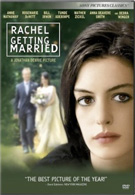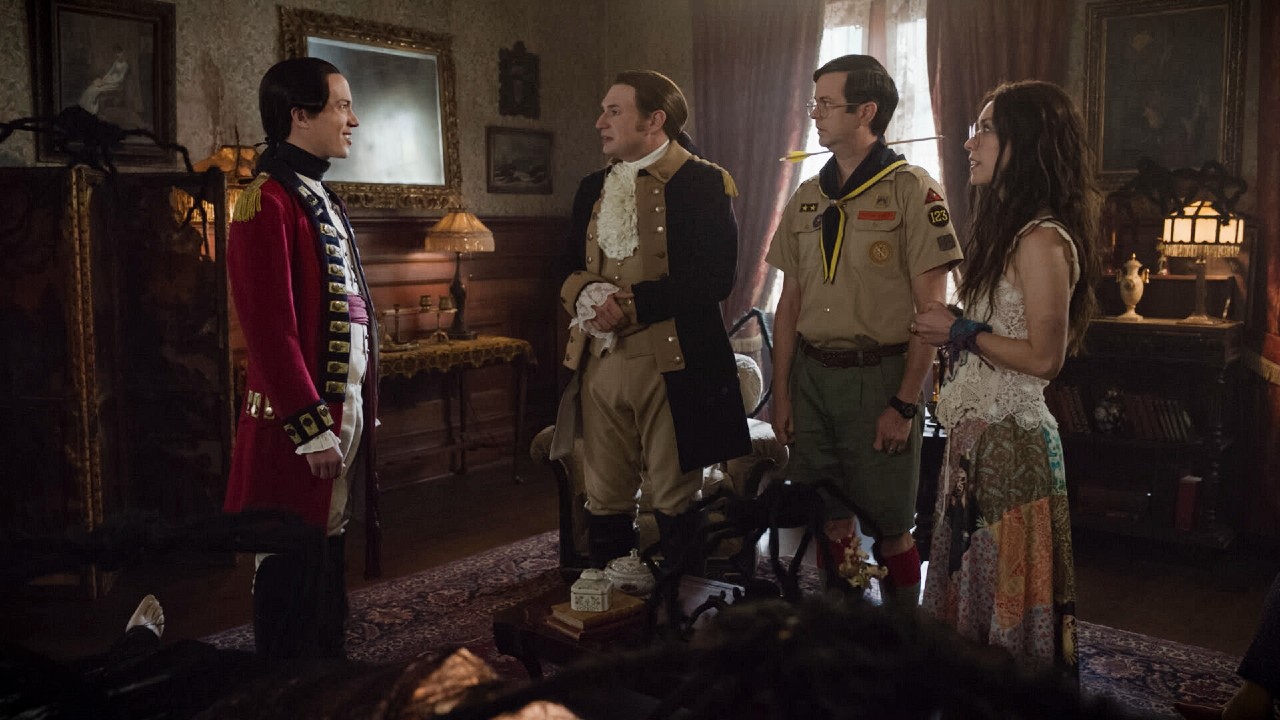It has become somewhat fashionable to confuse nihilism with realism and to credit shallow filmmakers with depth merely because their themes are resoundingly negative. It's a cynical conceit which equates hope with naivete. Jonathan Demme has often been attacked as naive for the supposed la-la land of liberalness he depicts onscreen. Blacks, Whites, Hispanics, Asians, Gays, Straights, Bush, Obama; everyone is invited to his Starship Enterprise with open arms. The truth lies less in Demme's perceived naivete than in the childish cynicism of his critics. It's cynical to believe that people can never see the humanity in others beyond their social or cultural differences. Demme has never made a film in which these differences were ignored, in fact, they are most often celebrated. Not since the great Jean Renoir has there been a filmmaker more inclined to allow everyone to "have their reasons." In Demme's cinematic world, there are no heroes, no villains, no simple right or wrong and there is nothing naive about that. Amidst the worst of human impulses and self destructiveness, Demme always portrays life as hopeful - not some Capra-esque nirvana of love and redemption but as a tough world full of complex choices and always with the unshakeable conviction that life does, indeed, go on. Even Hannibal Lector at the end of Demme's The Silence of the Lambs is allowed to have an old friend for dinner and the hope of a new life somewhere far from the grip of the FBI. Rachel Getting Married, Demme's latest film, is like a digest for everything he has stood for as a filmmaker since 1974's women-in-prison classic Caged Heat. In truth, the film often seems less like an actual narrative than a kind of Demme art happening. His sweeping and very democratic visual style seems to have been fused with the ideas behind the Danish Dogme movement and the all inclusive collaborative cinematic murals of Robert Altman. The story is simplicity itself: On a weekend pass from a rehab facility, recovering addict Kym (Anne Hathaway) comes home to attend her sister Rachel's (Rosemarie DeWitt) wedding and is very much aware that all eyes are on her from the instant she's picked up. Her father Paul (Bill Irwin) is way too overprotective, while her sister Rachel seems to want her to vanish, having picked her best friend Emma (Anisa George) over her as maid of honor. But neither of them is a match for her mother, Abby (Debra Winger) whose distance from her children is rivaled only by that of Mary-Tyler Moore in Ordinary People.
This is all familiar material and certainly the angst ridden yet privledged protagonist is on its way to be a real indie film cliche. But it's the way these elements are handled by screenwriter Jenny Lumet (daughter of the great filmmaker Sidney Lumet) and particularly through Demme's off-kilter direction that the proceedings have a wider scope. Demme takes no sides in the story, not even Kym's. Much of her behavoir can be seen as narcissistic and childish and though Rachel seems equally as spoiled, her resentment towards Kym's need for constant attention and her father's indulgence of it is clearly presented. Kym's need for attention is fueled by her desire for unconditional love from her family; love which seems to have been sucked out of them years ago following Kym's drug fueled car accident which took the life of her baby brother Evan.
This isn't the kind of melodrama where a happy facade is slowly torn away through long boiling tensions though. In this film, the tensions are there from the start and no one has illusions that things are nice and rosy. Every scene is imbued with tension, many of which do not boil over into any kind of catharsis, but remain unfinished and unresolved. Only once does the film slip into heightened melodrama, during Kym's emotional confrontation with her mother. The scene, while well played by Winger and the deservedly Oscar nominated Hathaway, appears forced into the body of a movie which seems far more effortless.
Indeed, it's this effortlessness which is the film's greatest appeal. Long sequences are set up, such as the rehearsal dinner, Kym's drug abuse meetings, and of course, the wedding itself and rather than being staged for the camera these are allowed to happen in real time and captured for the movie. The viewer is a voyeur in these scenes, catching glances between characters and the full vibrance of life as it goes on and on. Visually, the film looks very nice. Recorded primarily on a professional HD camera with supplementary commercial-grade HDV(including the zero budget filmmaker's favorite the Canon HV20), the film was likely shot in HD standard 16:9 and cropped for theatrical release. Image quality is strong but variable depending on what source camera is covering the scene. The audio is well mixed but there's a tendency for dialogue to drop levels at times, most likely due to the complex nature of the staging and recording.
Where this DVD shines is in a set of very impressive special features which go a long way towards explaining why the film has such a unique effect. There are three featurettes. "A Look Behind the Scenes of Rachel Getting Married" is a little bit different than the standard on set visit mostly because director Jonathan Demme is so forthcoming about his intentions and does not seem to have any phoniness about him at all. He discusses the intensely collaborative nature of the project and the unusual techniques he employed to create a very unique atmosphere. Demme trusted the writing enough to allow the movie to expand upon it, to fill it in with details that would be impossible to imagine while sitting in front of a screenwriting program. To do this, he created an environment for the film which was completely authentic - shot in a real house and cast with fascinating individuals from all walks of art and life. Many were not actors, but this is not exactly a film in which acting occurs in the traditional sense. Much of it required its cast to become masters of "being"-of learning how to move and breathe in character for long periods of time in what amounts to extended improvisations.
"The Wedding Band" focuses on the many musicians cast in the film to "score" the film live. Demme just told these artists to jam and allowed the music to fill the house. This was recorded while shooting with the actors instead of being constructed in post production. "Cast and Crew Q&A at Jacob Burns Center " is a neary hour-long post screening talk held by Demme, his cinematographer, editor Timothy Squyres, producer Neda Armian and actors Bill Irwin and Mather Zickel. It's an informative and very warm gathering of talented and supportive artists.
There are two full-length commentaries: One with producer Neda Armian, screenwriter Jenny Lumet, and editor Tim Squyers, and another with actress Rosemarie DeWitt flying solo. Both are worth a listen as everyone involved in this film seems to have an interesting perspective on their art.
Your Daily Blend of Entertainment News
Finally, there are about 15 minutes worth of what was clearly hours of deleted scenes. Since Demme shot most of the movie in "real time" (the rehearsal dinner for example was shot in two non-stop 45-minute takes) there must be so much performance material left behind in the editing bay. What we are allowed to see presents a narrative emphasis that was changed though excision. Mather Zickel's character of the recovering addict and best man has been trimmed down to reduce the subplot of his building relationship with Kym. It's better the way it is in the film itself, as Kiernan is not meant to be any kind of "white knight" for Kym but just a sympathetic friend. In some ways, the impact of his show of affection at the end of the film would've been muted with the addition of these scenes.
Honestly, this is a very well packaged single disc DVD. The only real gripe is the lack of more participation by Demme who should've been on at least one of the two commentary tracks as well as Anne Hathaway herself. How this hertofore mundane actress was able to find this very troubled character inside of her would've made for a very interesting listen.

